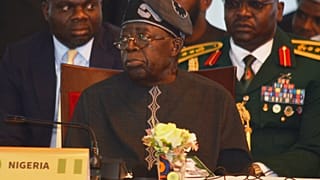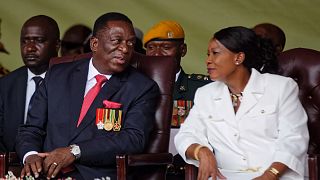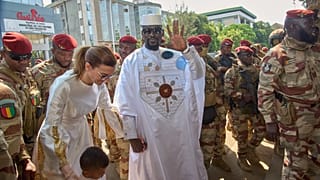Zimbabwe
Inflation in Zimbabwe hiked up in January in dollar and local currency terms, rising by 14.6% and 10.5% respectively in a year-on-year comparison.
According to independent economist Prosper Chitambara, the increase in inflation is due to higher taxes and a regional drought last year, which put pressure on food prices.
The Finance Ministry notably introduced a 0.5% tax on fast food and a 10% tax on sports betting proceeds in its latest budget, which came into effect this month.
Zimbabwe launched a new gold-backed currency in April last year, but it was sharply devalued in September.
Most local transactions still rely on foreign currencies like the U.S. dollar.
Since the devaluation, the Zimbabwe Gold currency has fallen further.
It was trading around 26.3 to the dollar on Tuesday, according to the central bank’s website.




![Africa's economy to expand in 2026 despite risks [Business Africa]](https://images.euronews.com/articles/stories/09/59/18/91/320x180_cmsv2_a090e29c-4edc-5b24-a887-6dea31e3ec4e-9591891.jpg)








01:49
Cape Town rental boom pushes low-income residents Into illegal housing
01:00
Christmas lights attract Lagos residents despite violence and rising costs
11:17
DRC-US mineral pact offers optimism—and inherent hurdles [Business Africa]
01:23
Donald Trump defends first year back in office in politically charged speech
11:18
Narrative Sovereignty: Africa Reclaims Its Global Voice {Business Africa}
00:59
Egypt opens bid to privatise Hurghada International Airport